Development Information

How can climate information sharing contribute to sustainable development goals ?
**How Can Climate Information Sharing Contribute to Sustainable Development Goals?** Climate information sharing plays a crucial role in achieving sustainable development goals (SDGs). This article discusses the various ways in which climate data can contribute to environmental sustainability, social equity, and economic growth. Key points include: 1. **Improving Resilience to Climate Change**: Early warning systems, adaptation planning, and infrastructure development are all enhanced by shared climate information. 2. **Supporting Sustainable Agriculture**: Farmers can use climate data for crop planning, water management, and pest and disease control. 3. **Promoting Clean Energy Solutions**: Climate information aids in renewable energy site selection, energy efficiency, and demand forecasting. 4. **Enhancing Biodiversity Conservation**: Habitat protection, species survival, and ecosystem services are all influenced by climate trends. 5. **Advancing Gender Equality**: Providing women with climate information can empower them and reduce their vulnerabilities during climate-related disasters. 6. **Fostering Partnerships for Sustainable Development**: Multi-stakeholder engagement, international cooperation, and public-private partnerships are all facilitated by climate information sharing. In conclusion, ensuring that stakeholders have access to accurate and timely climate data is essential for making progress towards a more sustainable future.
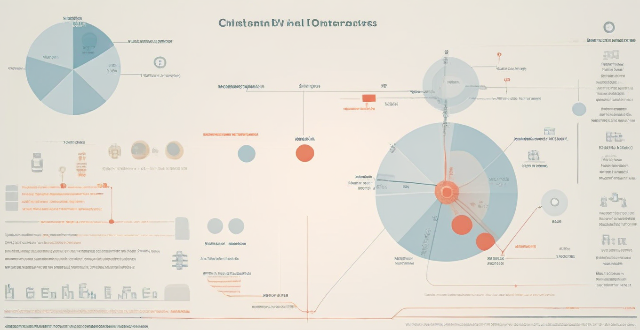
What is the importance of sharing climate information globally ?
Sharing climate information globally is crucial for understanding, predictSharing climate information globally is crucial for understanding, predictating the effects of climate change aids in modeling and forecasting future scenarios, and contributes to the development of early warning systems. Additionally, it fosters innovation, collaboration, and the formation of international agreements and policies related to climate change.

What are the potential economic benefits of sharing climate information ?
The potential economic benefits of sharing climate information include improved decision making through better planning and management, risk assessment and mitigation, increased efficiency and productivity, innovation and new business opportunities, and growth of the green economy. By leveraging this information effectively, businesses, governments, and individuals can adapt to changing climatic conditions while minimizing risks and maximizing economic gains.
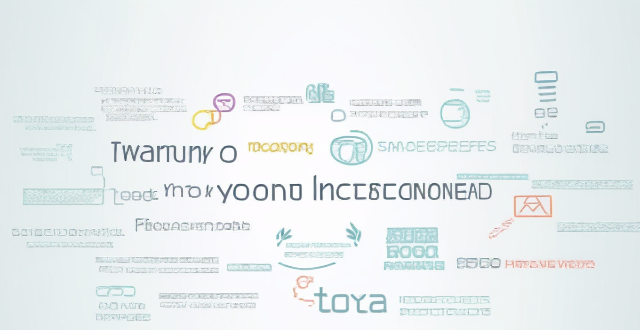
How can I protect my personal information online ?
In today's digital age, protecting your personal information online is crucial. To safeguard sensitive data, one should use strong and unique passwords, keep software and systems up-to-date, be careful with public Wi-Fi networks, be wary of phishing attacks, and limit the amount of personal information shared online. These steps can significantly reduce the risk of having personal information compromised online.

What are some best practices for protecting sensitive information on social media ?
Protecting sensitive information on social media is crucial in the digital age. To safeguard your personal data, follow these best practices: use strong passwords and a password manager; enable two-factor authentication; be cautious with personal information sharing; adjust privacy settings to restrict access; install anti-malware software; be wary of phishing scams; and always log out of accounts, especially on public devices. These steps will help ensure your online presence is secure.

What are the implications of cognitive development theories in educational psychology ?
Cognitive development theories have significant implications in educational psychology. These theories help educators understand how children think, learn, and process information. By applying these theories, educators can create effective learning environments that cater to the cognitive needs of their students. Piaget's theory suggests that children progress through four stages of cognitive development and emphasizes the importance of hands-on activities and constructivist learning. Vygotsky's sociocultural theory highlights the role of social interaction and cultural tools in cognitive development. Information processing theory focuses on working memory, cognitive load, and metacognition. By understanding these theories, educators can enhance student learning and promote cognitive growth.

How can I avoid information overload when taking notes ?
When taking notes, it's easy to become overwhelmed by the sheer volume of information. However, there are strategies you can employ to avoid information overload and ensure that your note-taking is effective and efficient. Here are some tips: 1. Prioritize Information: Determine what information is most important and relevant to your needs. Focus on key concepts, main ideas, and supporting details that are directly related to your goals or assignment requirements. This will help you filter out extraneous information and prevent you from feeling overwhelmed. 2. Use a Systematic Approach: Develop a consistent system for organizing your notes. This could involve using headings, subheadings, bullet points, or numbered lists to break down information into manageable chunks. By doing so, you'll be able to quickly identify and locate specific pieces of information later on. 3. Take Breaks and Review: Taking regular breaks while studying or attending lectures can help reduce cognitive fatigue and improve focus. During these breaks, review your notes briefly to reinforce key concepts and identify areas that may need further clarification or elaboration. 4. Summarize and Paraphrase: Instead of trying to capture every word verbatim, summarize or paraphrase key points in your own words. This not only helps with retention but also encourages active learning as you process the information more deeply. 5. Use Visual Aids: Incorporating diagrams, charts, or other visual aids into your notes can help simplify complex information and make it easier to understand and remember. These tools can also serve as helpful reminders when reviewing your notes later on. By implementing these strategies, you can effectively manage the amount of information you encounter during note-taking sessions and avoid feeling overwhelmed or stressed out. Remember, the goal is not to capture every detail but rather to distill key concepts and retain them for future reference.
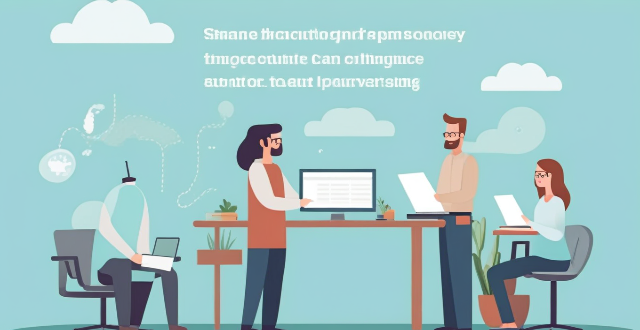
Can climate information sharing lead to better policy making ?
Climate change is a pressing issue that requires informed policymaking. Climate information sharing can improve decision-making, collaboration, and transparency in the policy process. However, challenges such as data quality, accessibility, and coordination must be addressed to ensure effective information sharing. Overcoming these challenges can lead to better policies that address climate change.
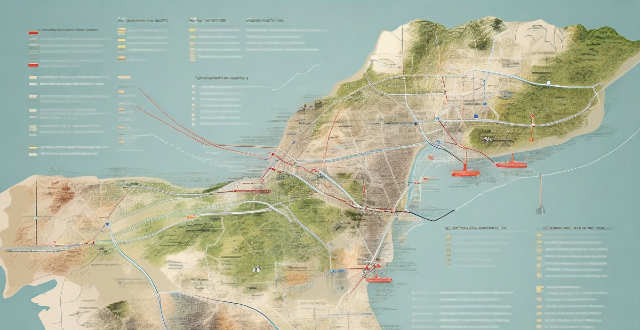
How do mind maps aid in studying and retaining information ?
Mind maps are a visual tool that aids in studying and retaining information by improving organization, enhancing creativity, promoting active learning, and facilitating recall. They provide a logical structure for organizing thoughts and connecting ideas, making complex information more accessible. Mind maps also encourage brainstorming and experimentation, leading to better learning outcomes. Additionally, they promote deeper learning through active participation and reflection on understanding. Finally, mind maps facilitate recall by providing visual cues and breaking down information into manageable chunks. Incorporating mind maps into your study routine can boost academic performance and achieve better results in your studies.

How can technology improve the process of climate information sharing ?
In this topic summary, we will discuss how technology can improve the process of climate information sharing. Technology has revolutionized the way we share and access information, including climate data. With advancements in technology, it is now easier than ever to collect, analyze, and disseminate climate information to a wide range of stakeholders. Data collection and analysis are crucial steps in the process of climate information sharing. Remote sensing, ground-based sensors, and data analysis software are some of the tools that can be used to collect and analyze climate data. These tools can help us monitor changes in climate patterns over time, identify trends and predict future climate events. Dissemination of climate information is another important step in the process. Online platforms, social media, and open data initiatives are some of the ways that climate information can be shared with researchers, policymakers, and the general public. These platforms can also offer interactive tools for visualizing and exploring the data. Collaboration and partnerships are also essential in improving the process of climate information sharing. Cloud-based collaboration tools, partnerships with tech companies, and crowdsourcing are some of the ways that researchers and stakeholders can work together on climate projects, sharing data and insights in real-time. In conclusion, technology plays a crucial role in improving the process of climate information sharing by enhancing data collection and analysis, facilitating the dissemination of climate information, and fostering collaboration among stakeholders. As technology continues to evolve, we can expect even more innovative solutions for addressing the challenges posed by climate change.
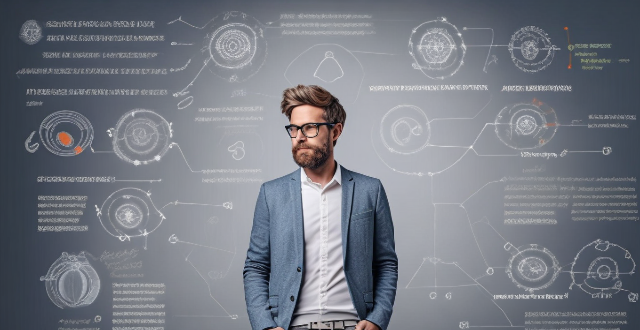
What is the importance of sleep in the development of teenagers ?
Sleep is crucial for teenagers' physical, mental, and emotional development. It aids growth, strengthens the immune system, and helps with weight management. Adequate sleep improves memory, cognitive function, and emotional regulation. It also reduces stress, enhances social interaction, and boosts self-esteem. Parents should encourage good sleep habits to support their teenagers' healthy development.

How can climate data analysis inform sustainable development goals and practices ?
**Summary:** Climate data analysis is crucial for understanding environmental systems and shaping sustainable development goals (SDGs) and practices. It helps identify trends, inform policy decisions, assess environmental impacts, and guide sustainable agriculture, urban planning, and disaster risk reduction. By integrating climate data into development frameworks, we can ensure that current actions do not compromise future generations' ability to meet their needs and aspirations.

What role does gamification play in educational game development ?
Gamification plays a crucial role in educational game development. It is the process of incorporating game elements into non-game contexts to make them more engaging and motivating for learners. In the realm of education, gamification can transform traditional learning experiences into interactive and enjoyable ones. This approach not only enhances student engagement but also fosters a positive learning environment. Key roles of gamification in educational game development include enhancing student engagement, providing immediate feedback, fostering competition and collaboration, encouraging self-directed learning, and incorporating relevant content. By leveraging these principles, educators can create effective learning experiences that are both enjoyable and impactful for students.

How do I integrate new information into my existing knowledge framework ?
Integrating new information into your existing knowledge framework is a crucial skill for learning and personal growth. Here are some steps you can follow to effectively incorporate new knowledge into what you already know: ## Identify Relevant Information 1. **Scan** the new information quickly to get an overview. 2. **Identify** key concepts, theories, or facts that relate to your current knowledge. 3. **Filter out** any irrelevant or redundant information. ## Connect with Existing Knowledge 1. **Activate** your prior knowledge by recalling similar concepts or experiences. 2. **Make connections** between the new information and what you already know. 3. **Create analogies** or metaphors to help relate the new information to familiar ideas. ## Evaluate and Organize Information 1. **Assess** the validity and reliability of the new information. 2. **Organize** the information in a way that makes sense within your existing framework. 3. **Categorize** the new knowledge based on its relevance and importance. ## Reflect and Consolidate 1. **Reflect** on how the new information affects your understanding or perspective. 2. **Consolidate** the new knowledge by summarizing it in your own words. 3. **Reinforce** the integration by explaining it to someone else or applying it in practice. ## Update Your Knowledge Framework 1. **Modify** your existing framework to accommodate the new information. 2. **Expand** your knowledge base by adding new categories or subtopics if necessary. 3. **Re-evaluate** the relationships between different pieces of knowledge within your framework. ## Practice and Apply 1. **Apply** the new knowledge in real-world situations to deepen your understanding. 2. **Practice** recalling and using the new information regularly. 3. **Seek feedback** from others to validate and refine your understanding further. By following these steps, you can effectively integrate new information into your existing knowledge framework, fostering continuous learning and intellectual growth.

What resources are available for career planning and development ?
This text provides an overview of various resources available to support career planning and development. It covers online courses, networking opportunities, mentorship programs, job boards, personal development books and podcasts, coaching services, government and non-profit resources, university career services, company ERGs, and industry publications. These resources aim to enhance skills, expand networks, and keep individuals informed about opportunities that align with their career goals.
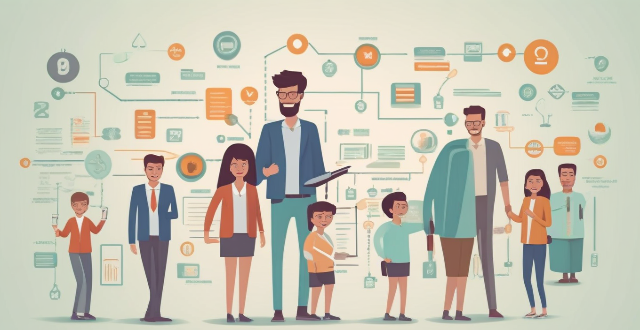
What measures do variety shows take to prevent sensitive information from being leaked ?
Variety shows take measures to prevent sensitive information leaks, such as non-disclosure agreements and confidentiality clauses in contracts. They also control access to sensitive information, implement security measures, and provide training and education for participants and crew members. These strategies help ensure the privacy and security of participants while providing entertaining content for viewers.
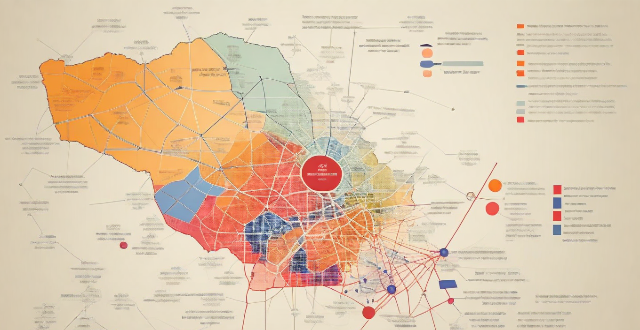
How can mind maps help in revising large amounts of information ?
Mind maps are a useful tool for organizing and revising large amounts of information. By visualizing complex information, identifying key themes and relationships, organizing thoughts, improving memory retention, and facilitating creative thinking, mind maps can help learners better understand and retain information. To use mind maps effectively, choose a central idea or theme, create branches for subtopics, add details and examples, connect related ideas, review and refine the map, and use it as a study tool.
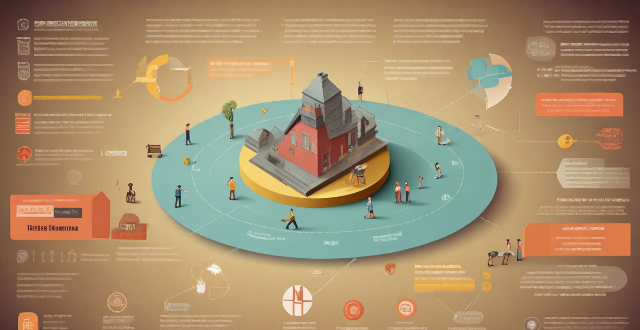
How common is it for participants to leak information about other celebrities on variety shows ?
Leaking sensitive information about fellow celebrities on variety shows is a recurring issue in the entertainment industry. The frequency of such incidents can be attributed to factors like loose lips, attempts to gain attention, misunderstanding private boundaries, and the format of the show. Consequences of leaking information include strained relationships, public backlash, and potential legal repercussions. To mitigate the issue, measures such as education and awareness, clear guidelines, editing and control, and building a safe environment can be implemented. Addressing this matter head-on can safeguard the privacy and well-being of all involved while still providing entertaining content on variety shows.
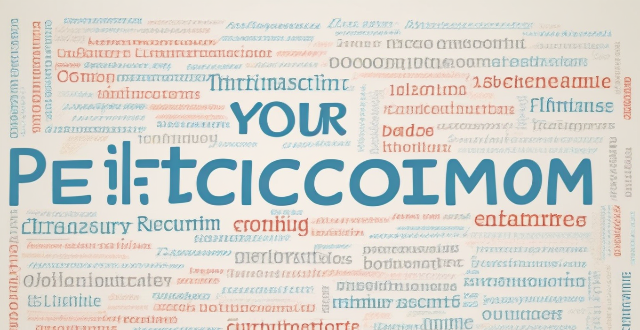
How can I prevent my personal information from being used in telecommunications fraud ?
To protect your personal information from telecommunications fraud, follow these steps: be cautious with personal information, use strong passwords and two-factor authentication, keep software and devices updated, be wary of suspicious emails and links, and educate yourself about common scams. By taking these precautions, you can reduce the risk of falling victim to telecommunications fraud.

How can governments support the development and implementation of sustainable energy solutions ?
Governments can support sustainable energy solutions through clear policies, financial incentives, R&D, education, infrastructure development, international cooperation, market-based mechanisms, and demonstration projects.

What are some effective methods for reviewing and retaining information before an exam ?
Preparing for an exam can be a daunting task, but with the right strategies and techniques, it is possible to effectively review and retain information before the exam. Some effective methods for reviewing and retaining information before an exam include creating a study plan, using active learning techniques, practicing retrieval and recall, and staying motivated and avoiding procrastination. By following these methods, students can improve their chances of success on their exams.

What information do I need to provide to Apple for assistance in finding my lost iPhone ?
If you have lost your iPhone and need assistance from Apple, there are certain pieces of information that you will need to provide. These include your personal information, Apple ID details, lost device details, iCloud settings, and proof of purchase. Providing accurate and detailed information will help speed up the process of locating your lost device.
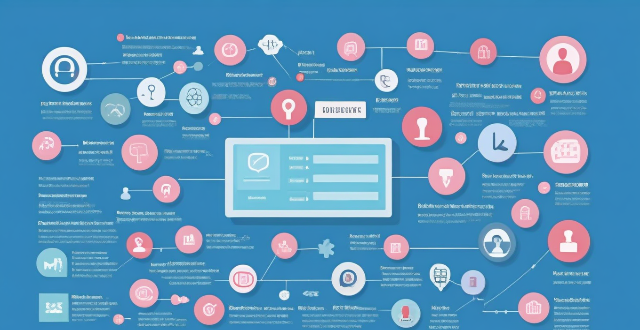
Can I control who sees my personal information on social media platforms ?
The article discusses how individuals can control who sees their personal information on social media platforms. It provides tips such as reviewing privacy settings, using lists and groups, being mindful of tagging and mentions, protecting personal information, and regularly reviewing privacy settings. By following these guidelines, users can customize their profile visibility and manage access to their personal information on social media platforms.
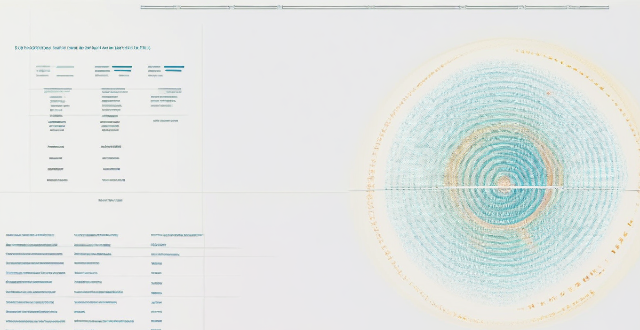
How do climate model predictions inform sustainable development goals ?
Climate model predictions are vital for guiding sustainable development goals (SDGs) by providing insights into future climate conditions. They help project future climate scenarios, assess risks and vulnerabilities, support policy decisions, promote cross-sectoral collaboration, and enhance public awareness. By using these predictions, policymakers can make informed decisions that promote sustainability and resilience, contributing to the achievement of the United Nations' 2030 Agenda for Sustainable Development.
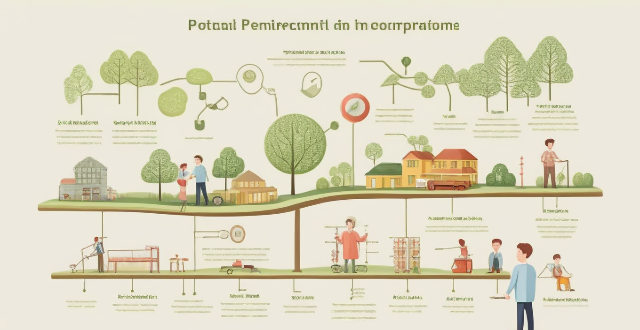
How does technology contribute to the growth and development of a multicultural society ?
Technology has played a pivotal role in the growth and development of multicultural societies. It has facilitated communication, understanding, and collaboration across diverse cultural backgrounds, leading to a more inclusive and interconnected world. The article explores how technology contributes to the growth and development of a multicultural society through enhanced communication, access to information, collaboration and partnership, and cultural preservation and promotion.
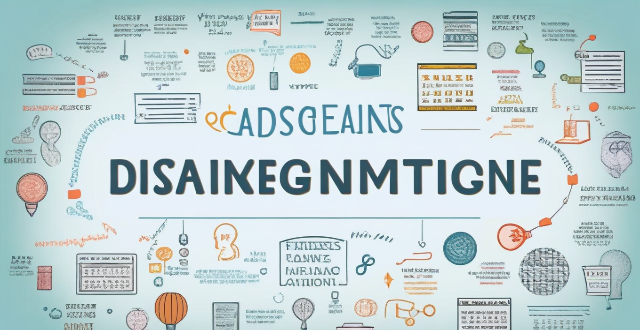
What are the challenges faced while sharing climate information across different countries ?
The text discusses the challenges faced while sharing climate information across different countries. The challenges include language barriers, data standardization, technical infrastructure, legal and policy frameworks, political will and cooperation, education and awareness, financial constraints, cultural differences, time zones and coordination, and quality assurance and control. Addressing these challenges through international cooperation, standardization efforts, and investment in technology and education can improve the sharing of climate information, leading to better informed decisions and more effective actions against climate change.
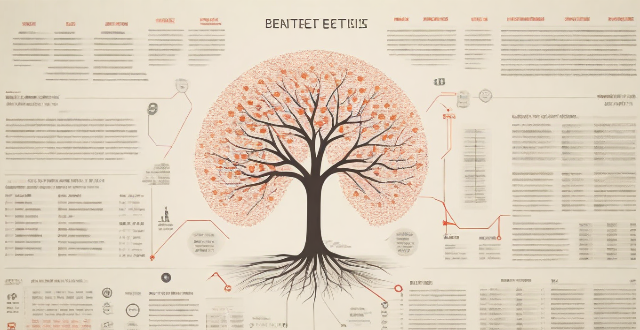
What are the benefits of extracurricular activities for teenage development ?
This article discusses the benefits of extracurricular activities for teenage development, including improved social skills, personal growth and self-discovery, academic success, physical health and well-being, and lifelong skills and habits.
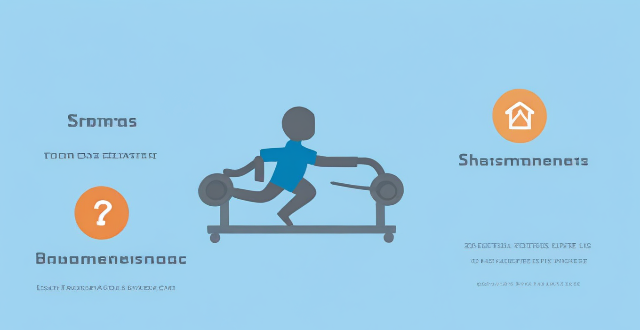
What are the benefits of sports research and development for athletes ?
The benefits of sports research and development for athletes include optimized training programs, advanced equipment and technology, risk assessment and management, rehabilitation and recovery, mental health support, and proper nutrition and hydration. These factors contribute to improved performance, injury prevention, and overall well-being for athletes.

What role do parents play in the development of their adolescent children ?
Parents play a crucial role in the development of their adolescent children by providing emotional support, guidance and discipline, educational support, promoting healthy lifestyle habits, aiding in social development, and shaping moral and ethical values.